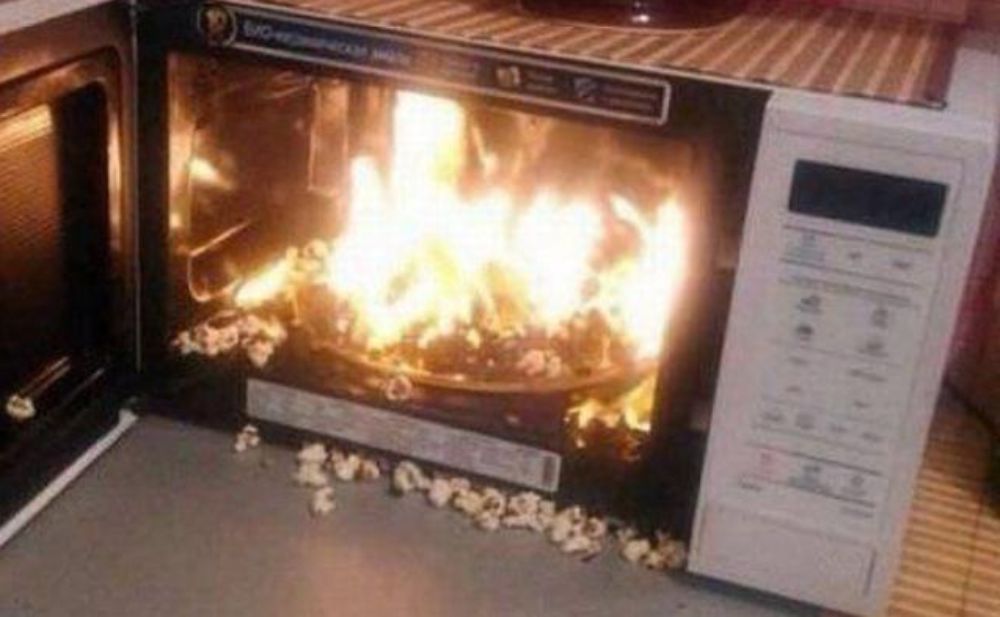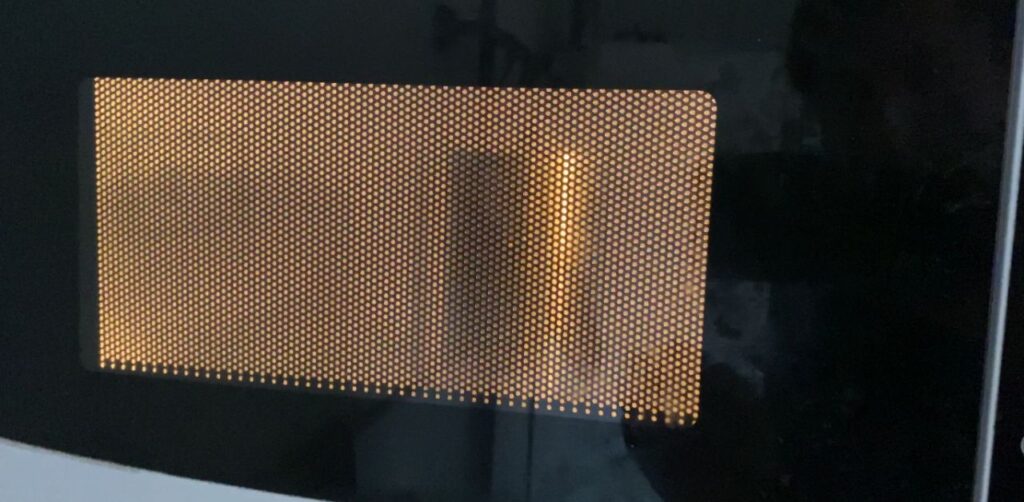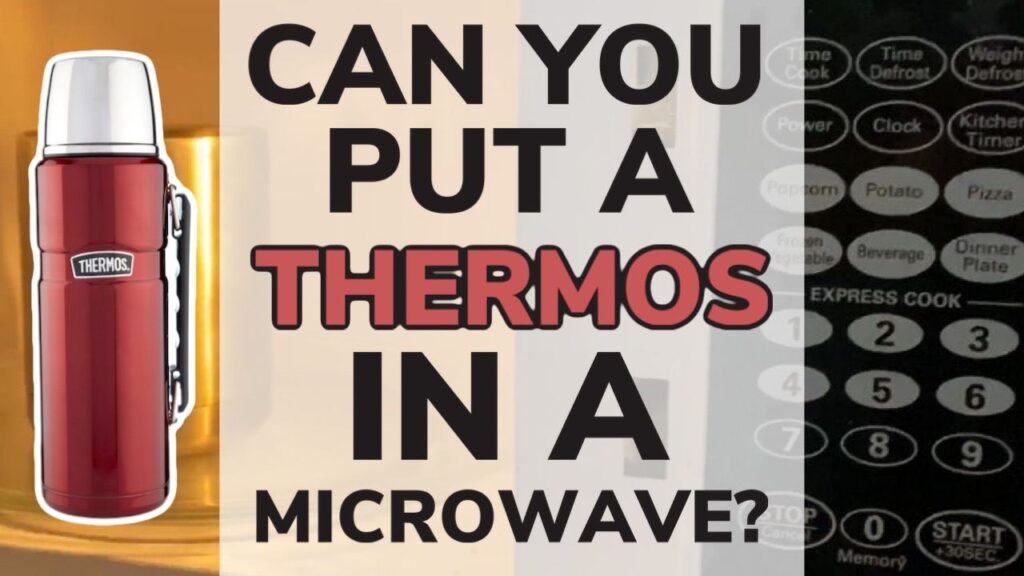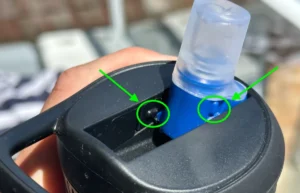Thermoses are great at keeping food warm if it's already hot, but can you heat up a thermos in the microwave?
Maybe your soup has gone cold and it needs a little zap to get up to temperature, or maybe you've been storing food cold and want to warm it up to eat.
We have all be told at one point or another not to put metal in a microwave, but what about thermoses? What happens if you put a thermos in a microwave.
Despite what is commonly believed you CAN put a metal thermos in the microwave without any major issues, it won't explode, spark or set on fire. The thick metal walls will cause the food or drink inside to heat up slower and less evenly than in a plastic, glass or ceramic cup/bowl.
You'll want to open the lid of your thermos to warm up your food or drink because apparently the microwaves can't pass through metal (thus why your microwave is made from metal).
However, if you have the lid open a little bit then at least some microwaves can get in through the opening at the top to warm up your food.
Will Putting a Thermos In The Microwave Break My Thermos or Microwave?

When people ask this question on forums and places like Quora there are people who will passionately respond that if you do so you're going to blow up your thermos and destroy your microwave.
There is a common belief that putting metal in the microwave is no allowed and is dangerous. But this is only sort of true.
Thin metal (like aluminium foil) can get very hot in the microwave and the bumps and sharp edge in alfoil as well as forks can cause sparks.
However, putting in smooth thick metal objects like a thermos is highly unlikely to cause any sparks at all.
The below video shows me putting a Yeti cup (also double insulated just like a thermos) in my microwave for a full minute without any issues:
There is also the below video where you can see someone putting in aluminium foil scrunched up and then in a smooth ball.
The scrunched up pieces spark and cause damage but the smooth ball does absolutely nothing
Your thermos is much more like the smooth ball than it is like the scrunched up bits of alfoil.
So the chances of sparks flying and flames growing and explosions…exploding are pretty slim.
What Happens When You Heat Up a Thermos In The Microwave

So what exactly happens when you heat up a thermos in the microwave?
When you heat up a thermos in a microwave the metal of the thermos reflect the microwaves and warms up slightly. With the lid open the inside contents will warm up, but much slower than in a glass, plastic or ceramic container.
Basically putting a thermos in a microwave is extremely inefficient. The stainless steel exterior of the thermos will reflect almost all of the microwaves meaning they can't get into your food.
With the top of the thermos open microwaves can get into your food/drink and warm them up, albeit slowly.
In my experiment when I put a Yeti cup in a microwave the water inside the Yeti cup rose in temperature by 20ºF (11ºC). This was enough to be noticeable but it wasn't a huge amount.
When I put a glass cup in the same microwave with the same amount of water the temperature of the water increased by approximately 63ºF (35ºC).
So it was much more effective to use a glass, plastic or ceramic cup or bowl as microwaves are able to pass through this.
Putting a thermos in the microwave also means the microwaves can only enter from the top, not from all directions.
This means that your food or drink will heat up less evenly when placed in the microwave inside a thermos.
In Summary
In summary, you can safely put a thermos in the microwave without any real issues.
You'll need to take the lid off and it won't heat up food or drink as quickly or as evenly as using a glass, plastic or ceramic container but it will still work.
You should still watch your thermos in the microwave just in case you see sparks, in which case you should stop the microwave immediately.
Also be careful when getting your thermos out of the microwave as the metal may have become hot to touch.




